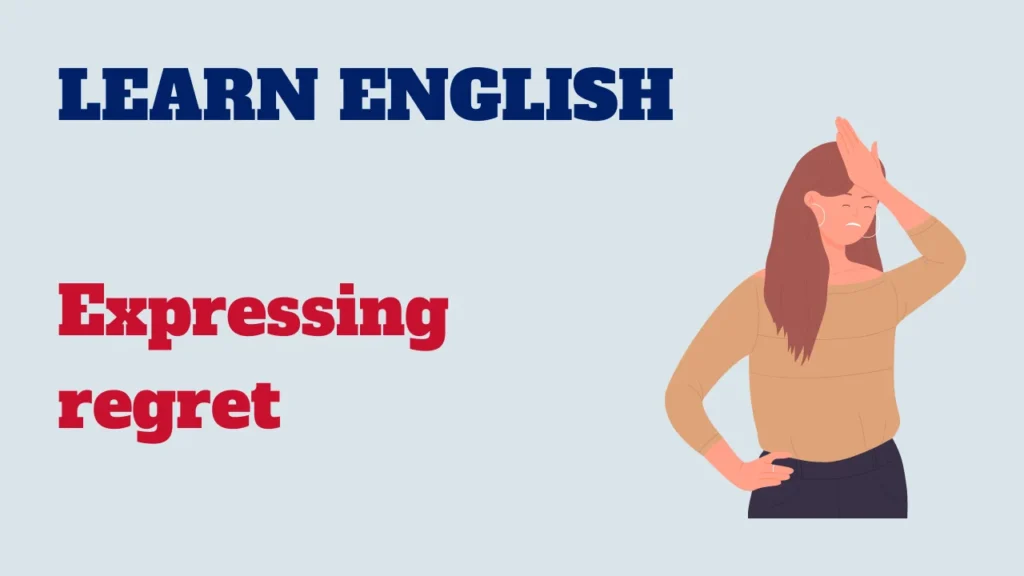Learning how to express regret is essential for effective and empathetic communication.

In this lesson, we will explore various ways to say that you regret something in English, using appropriate words and expressions to communicate your feelings.
I regret – Expressing regret
“I regret” is a simple expression to indicate that you feel regret about a situation.
Example:
I regret missing the meeting.
I’m sorry – Offering apologies
“I’m sorry” is a common way to express apologies and show regret.
Example:
I’m sorry for forgetting your birthday.
It’s my fault – Taking responsibility
“It’s my fault” means that you acknowledge that you are responsible for something and feel regret about it.
Example:
It’s my fault that we are late.
I blame myself – Showing self-blame
“I blame myself” is used to express that you blame yourself and feel regret for something.
Example:
I blame myself for losing your keys.
I didn’t mean to hurt you – Expressing good intentions
“I didn’t mean to hurt you” is a way to show that you had good intentions, even if things went wrong.
Example:
I didn’t mean to hurt you by saying that.
I deeply regret it – Expressing deep regret
“I deeply regret it” shows that your regret is sincere and profound.
Example:
I deeply regret hurting your feelings.
I should have… – Expressing regret for a missed action
“I should have” is used to express that you should have done something differently and feel regret about it.
Example:
I should have called you last night.
I’m truly sorry – Expressing strong regret
“I’m truly sorry” is a stronger way to express regret.
Example:
I’m truly sorry that you had to endure that.
Expressing regret in English is essential for maintaining positive and empathetic relationships. Choose the response that best fits the situation and the emotion you want to express. Practice regularly to strengthen your communication skills in English. Happy practicing!



